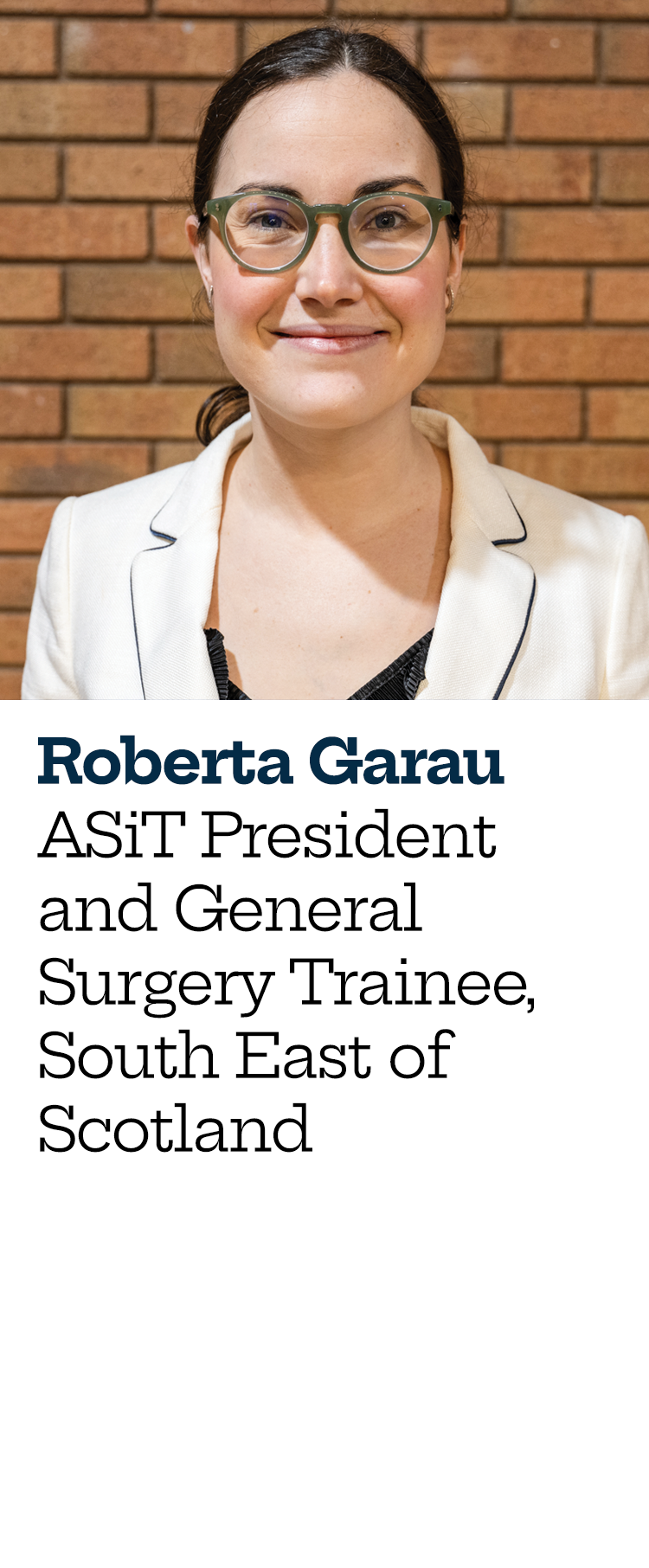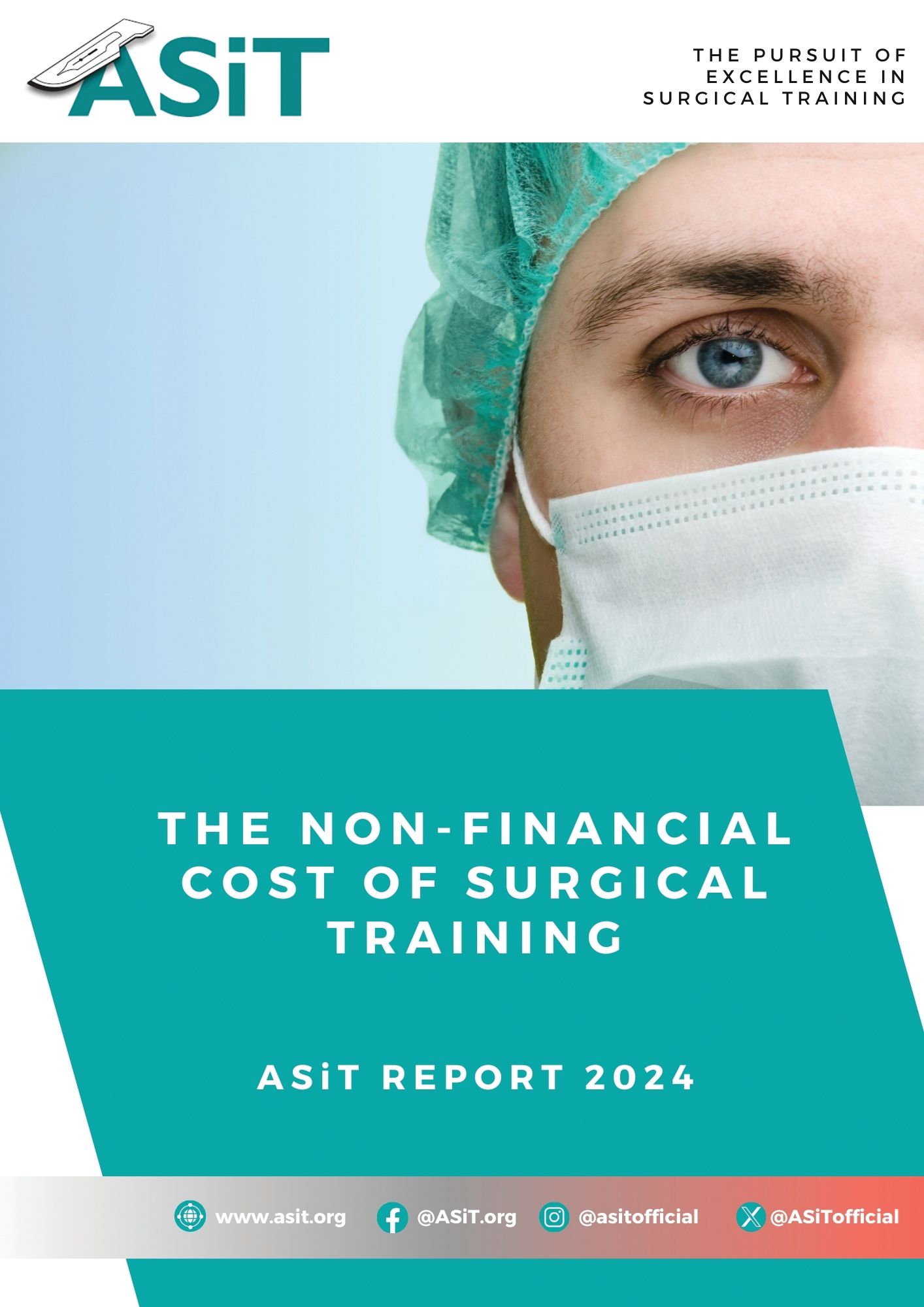Healthy doctors, safer patients
A recent ASiT survey has revealed the negative impact training can have on trainees’ mental health and physical wellbeing, says Roberta Garau

The NHS has been under immense pressure since the Covid-19 pandemic. Surgical waiting lists are at a record high and patient satisfaction at an all-time low1. Surgeons in training are not immune to the challenges posed by the current pressures. The 2023 General Medical Council (GMC) National training survey found that two-thirds of trainee doctors are at high risk of burnout, the highest level since it started collecting this data in 20182. The 2023 UK Surgical Workforce Census also highlights burnout as a significant contributor to surgical trainees considering leaving the profession3.
The Association of Surgeons in Training (ASiT) Non-Financial Cost of Training survey aimed to collect and analyse quantitative and qualitative data related to trainees’ wellbeing to develop a detailed understanding of the challenges they face4. Our goal is, in collaboration with stakeholders, to develop impactful and sustainable solutions to improve wellbeing and morale and, ultimately, improve the care we provide to our patients. More than 450 trainees answered the survey, making it the largest qualitative survey dedicated to UK surgical trainees’ wellbeing.
The survey highlights the negative impact training can have on mental health and physical wellbeing, reported by 76.8% and 74.3% of respondents, respectively. Many trainees need to access treatment or take sick leave because of the direct impact of surgical training on their health (Figure 1).
Surgical trainees also reported poor working culture and poor work-life balance, which affects all aspects of their private life: relationships with friends, family and partners; parenting; finding a permanent home; and their ability to attend important family events. Doctors at all stages of their careers and in all surgical specialties were affected, irrespective of their gender or ethnicity.
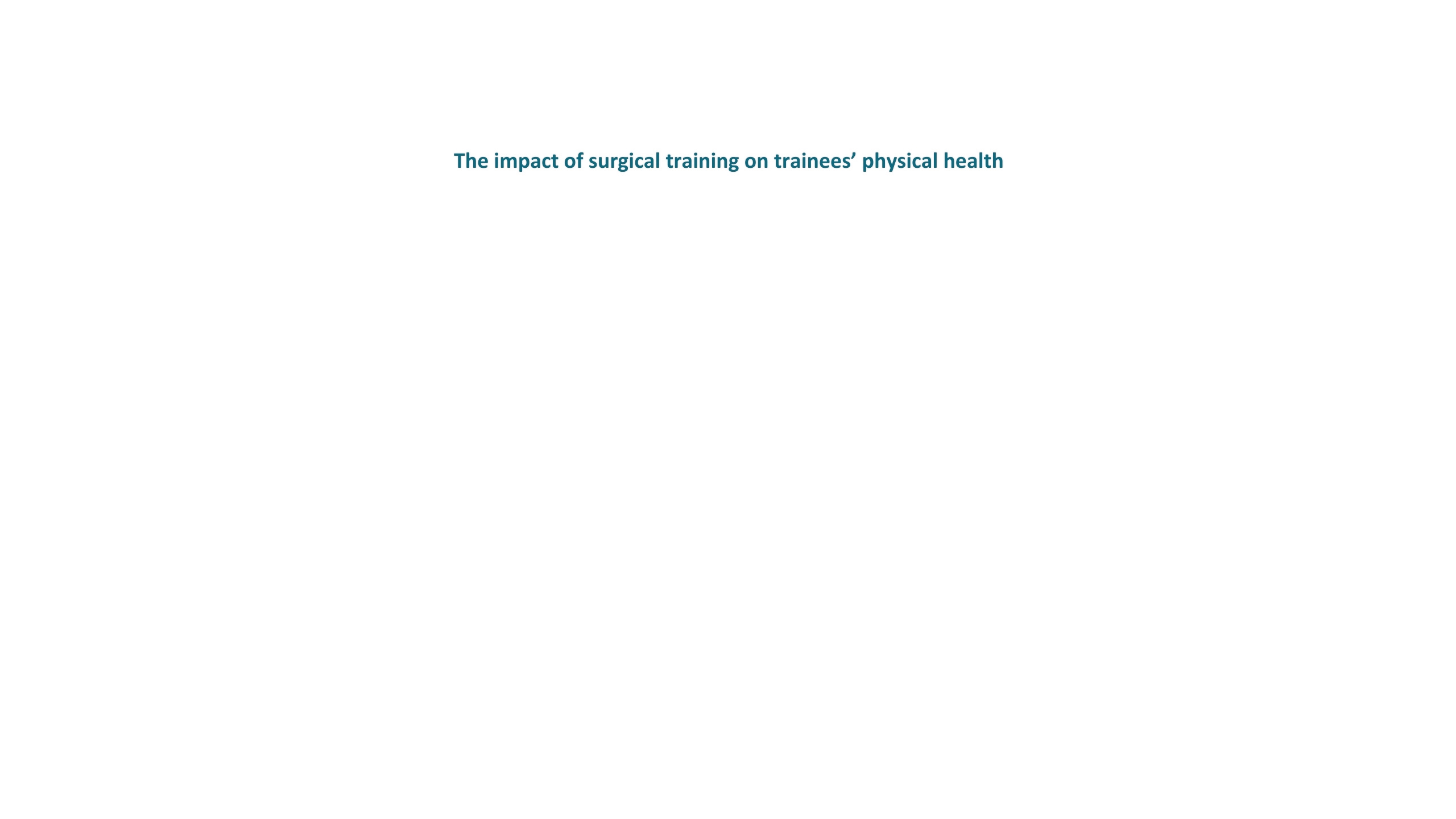
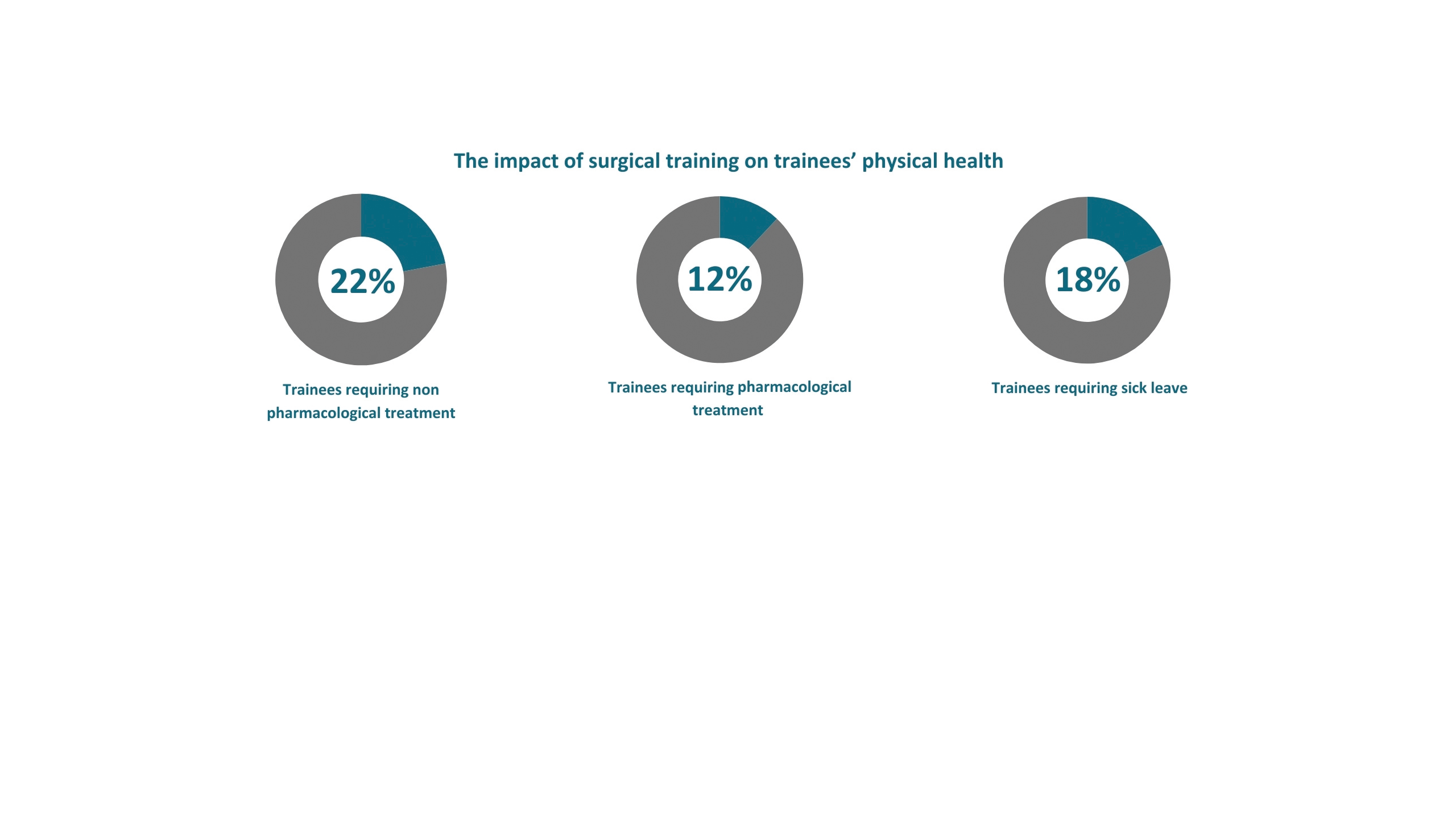
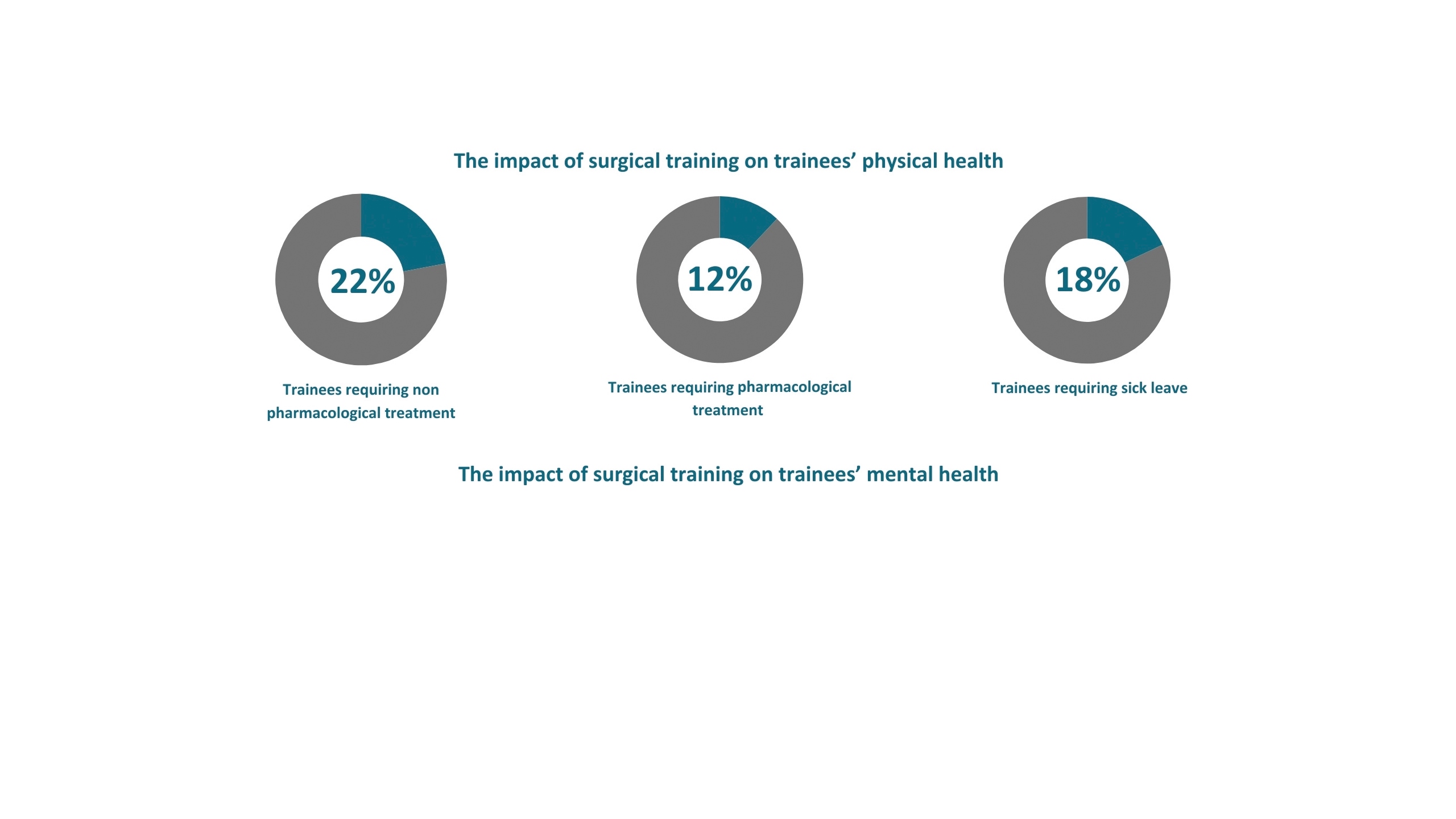
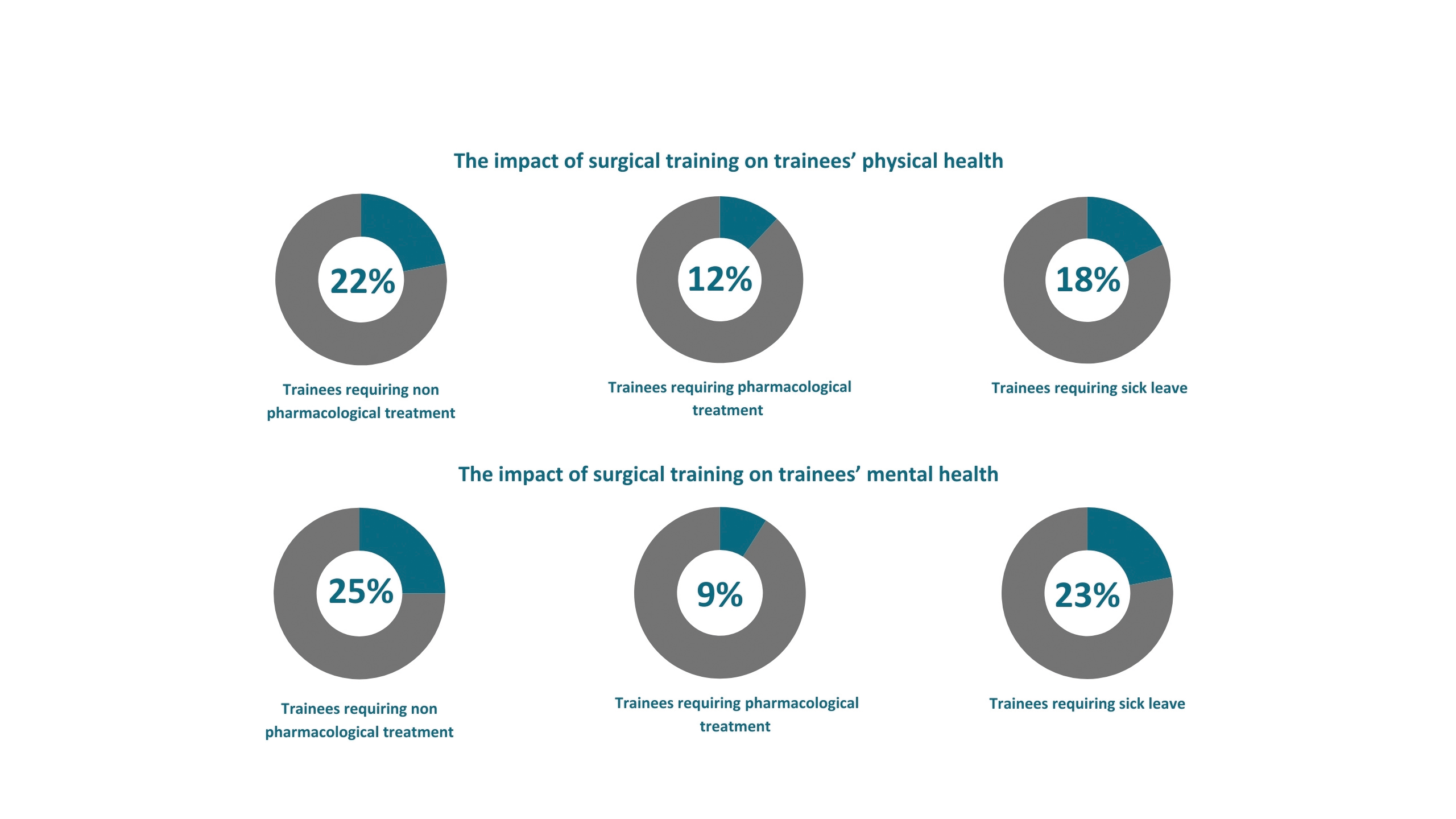
LEAVING THE PROFESSION
The survey found one in two respondents are considering leaving their surgical career or intending to practise in another country because of the non- financial burden of training, with junior trainees more likely to be dissuaded from a career in surgery. Although representing a small sample size, these results echo the GMC report Identifying groups of migrating doctors research5. The potential loss of trainees at a time of medical workforce shortage amid the post-pandemic recovery is a clear issue for patient safety
and the delivery of the best possible care.
There is increasing evidence that burnout and poor wellbeing affect patient safety and their experience of care6,7,8. Burnout has been linked to increased frequency of medical errors, reduced empathy and poor professionalism6,7,8. It is paramount that all stakeholders work towards improving the working lives of the consultants of tomorrow.
"The survey found one in two respondents are considering leaving their surgical career or intending to practise in another country because of the non-financial burden of training"
Many of the readers of this magazine are directly involved in training the next generation of surgeons. The ASiT team is grateful to all consultants who, despite the professional challenges they themselves face, go above and beyond to provide excellent training and work towards fair and sustainable working practices. Although it might seem that as individuals we can do very little to influence current working practices, our report has identified practical steps that every one of us can champion.
CONSIDER THE IMPACT
If you are in a formal educational role, have you considered the impact that multiple, non- commutable rotations have on your trainees’ wellbeing? If they are common in your region, are they essential for training progression? We ask you to consider the impact on your trainees and discuss their views on possible solutions.
If you are not in a formal educational role, you can still champion your trainees’ wellbeing. You can ensure your trainees are receiving their rotas on time, are able to take annual leave for important family events and have self-development time built into their rota.
More than a decade has passed since the Mid Staffordshire report highlighted that education and training are significant contributors to improved patient safety9. We owe it to our patients, and the consultants of tomorrow, to ensure that we maximise the wellbeing of surgical trainees to enable them to deliver the best possible care.
References
1 Morris J, Schlepper L, Dayan, et al. Public satisfaction with the NHS and social care in 2022. Results from the British Social Attitudes Survey.
2 General Medical Council. National Training Survey 2023 Results.
3 Royal College of Surgeons of England. UK Surgical Workforce Census Report 2023.
4 Association of Surgeons in Training. Cost of Surgical Training (CoST) Report – Non-Financial.
5 IFF Research. Identifying groups of migrating doctors research.
6 Panagioti M, Geraghty K, Johnson J, et al. Association between physician burnout and patient safety, professionalism and patient satisfaction: a systematic review and meta-analysis. JAMA Intern Med 2018; 178(10): 1317–1331. doi: 10.1001/ jamainternmed. 2018.3713.
7 Aiken LH, Sermeus W, McKee M, et al. Physician and nurse well-being, patient safety and recommendations for interventions: cross-sectional survey in hospitals in six European countries. BMJ Open 2024; 14(2): e079931. doi: 10.1136/ bmjopen-2023-079931.
8 Al-Ghunaim TA, Johnson J, Biyani CS, et al. Surgeon burnout, impact on patient safety and professionalism: A systematic review and meta-analysis. Am J Surg 2022; 224(1 Pt A): 228– 238. doi: 10.1016/j. amjsurg.2021.12.027.
9 UK Government. Report of the Mid Staffordshire NHS Foundation Trust Public Inquiry: Executive Summary.
Full references can be viewed at rcsed. shorthandstories.com/ homepage


